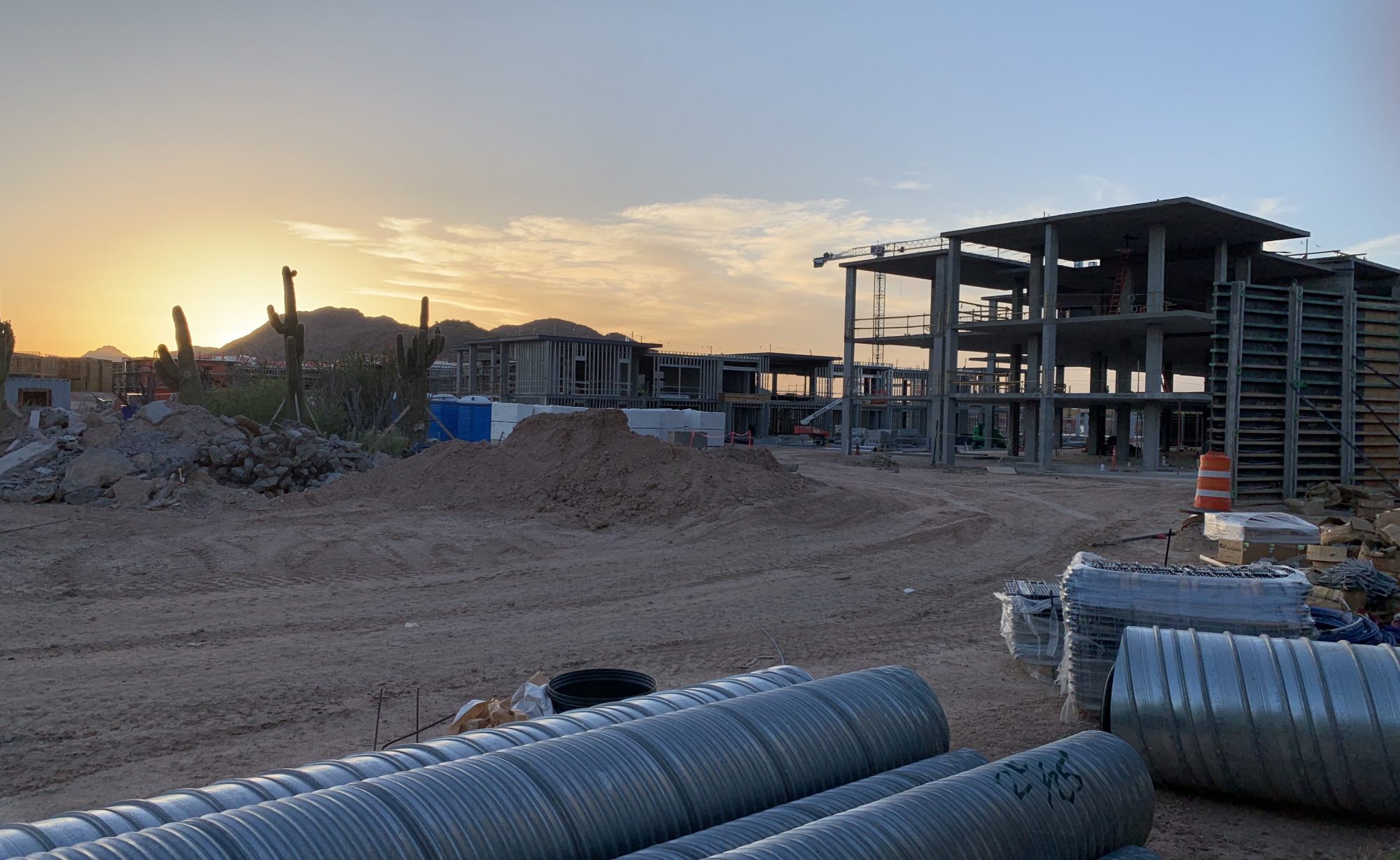 It is well-established Arizona law that a warranty of habitability and workmanship is implied into all residential construction contracts. In Sirrah Enterprises, LLC v. Wunderlich, 242 Ariz. 542 (2017), the Arizona Supreme Court recently decided “whether the successful party on a claim for breach of the warranty qualifies for an attorney-fee award under either a contractual fee provision or A.R.S. § 12-341.01.” The Court held that the warranty is an imputed term of the construction contract, such that the prevailing party on a claim for breach of that term qualifies for an attorneys’ fee award under a controlling contractual fee provision or § 12-341.01.
It is well-established Arizona law that a warranty of habitability and workmanship is implied into all residential construction contracts. In Sirrah Enterprises, LLC v. Wunderlich, 242 Ariz. 542 (2017), the Arizona Supreme Court recently decided “whether the successful party on a claim for breach of the warranty qualifies for an attorney-fee award under either a contractual fee provision or A.R.S. § 12-341.01.” The Court held that the warranty is an imputed term of the construction contract, such that the prevailing party on a claim for breach of that term qualifies for an attorneys’ fee award under a controlling contractual fee provision or § 12-341.01.
Pool Change: Arizona Legislature Tweaks Mandatory Provisions For Swimming Pool Construction Contracts
 I have previously addressed the required minimum elements of Arizona construction contracts, which are set forth in A.R.S. § 32-1158(A). When it comes to contracts for the construction of residential in-ground swimming pools and spas, however, those minimum elements are not enough. Pursuant to A.R.S. § 32-1158.01(A), pool and spa contracts must also include several additional provisions. These additional provisions were recently tweaked by the Arizona Legislature through Senate Bill 1116, which became effective on August 9, 2017.
I have previously addressed the required minimum elements of Arizona construction contracts, which are set forth in A.R.S. § 32-1158(A). When it comes to contracts for the construction of residential in-ground swimming pools and spas, however, those minimum elements are not enough. Pursuant to A.R.S. § 32-1158.01(A), pool and spa contracts must also include several additional provisions. These additional provisions were recently tweaked by the Arizona Legislature through Senate Bill 1116, which became effective on August 9, 2017.
Amberwood Development, Inc. et al. v. Swann’s Grading, Inc.: Persuasive Authority on the Scope of Indemnification Provisions
 Division One of the Arizona Court of Appeals recently issued a decision addressing contractual indemnification provisions in Amberwood Development, Inc., et al. v. Swann’s Grading, Inc., 2017 WL 712269. Given that Amberwood Development is an unpublished memorandum decision (and not an opinion), it will have no precedential effect on any subsequent Arizona cases. It is, nevertheless, worth reviewing because it touches on two key aspects of indemnification provisions—(1) what acts or omissions are covered; and (2) whose acts or omissions are covered. In Amberwood Development, the court ultimately found that the subcontractor, Swann’s Grading, Inc. (“Swann’s”), was obligated to indemnify the general contractor, Amberwood Development, Inc. (“Amberwood”), for: (1) Swann’s non-negligent actions; and (2) all claims “arising out of or connected to Swann’s work,” regardless of who caused them.
Division One of the Arizona Court of Appeals recently issued a decision addressing contractual indemnification provisions in Amberwood Development, Inc., et al. v. Swann’s Grading, Inc., 2017 WL 712269. Given that Amberwood Development is an unpublished memorandum decision (and not an opinion), it will have no precedential effect on any subsequent Arizona cases. It is, nevertheless, worth reviewing because it touches on two key aspects of indemnification provisions—(1) what acts or omissions are covered; and (2) whose acts or omissions are covered. In Amberwood Development, the court ultimately found that the subcontractor, Swann’s Grading, Inc. (“Swann’s”), was obligated to indemnify the general contractor, Amberwood Development, Inc. (“Amberwood”), for: (1) Swann’s non-negligent actions; and (2) all claims “arising out of or connected to Swann’s work,” regardless of who caused them.
Construction Contract Provisions that are Statutorily Void and Unenforceable in Arizona
 In an earlier post, I addressed the statutorily-required minimum elements of Arizona construction contracts between contractors and property owners. As a reminder, those minimum elements are set forth in A.R.S. § 32-1158(A). This post will, however, address the other side of that same coin—namely, the relatively few construction contract provisions that are statutorily void and unenforceable in Arizona.
In an earlier post, I addressed the statutorily-required minimum elements of Arizona construction contracts between contractors and property owners. As a reminder, those minimum elements are set forth in A.R.S. § 32-1158(A). This post will, however, address the other side of that same coin—namely, the relatively few construction contract provisions that are statutorily void and unenforceable in Arizona.
First, A.R.S. § 32-1129.05(A) provides that the following are against Arizona’s public policy and are void and unenforceable:
Hatch Development, LLC v. Sol’s Construction Co., Inc.: A Primer on Common Law Indemnification

***UPDATE – 2/12/2018***
The Court of Appeals’ decision in Hatch Development, LLC, et al. v. Sol’s Construction Co., Inc., 240 Ariz. 171 (App. 2016), which is the subject of this post from November 2016, is no longer good law. The decision in Hatch was abrogated by the Arizona Supreme Court’s February 8, 2018 opinion in KnightBrook Ins. Co., et al. v. Payless Car Rental System, Inc., No. CV-17-0156-CQ.
Indemnification provisions are mainstays of most construction contracts. As a result, all contractors should be aware that the agreements they enter likely impose certain indemnification obligations upon them. But even the most seasoned contractors may not realize that construction contracts are not always the final word on indemnity. Rather, certain indemnification obligations can arise purely as a matter of law, even if the parties’ contract is silent on the issue. This is what is referred to as “common law indemnification,” and it was the subject of the Arizona Court of Appeals’ recent decision in Hatch Development, LLC, et al. v. Sol’s Construction Co., Inc., 240 Ariz. 171 (App. 2016).
